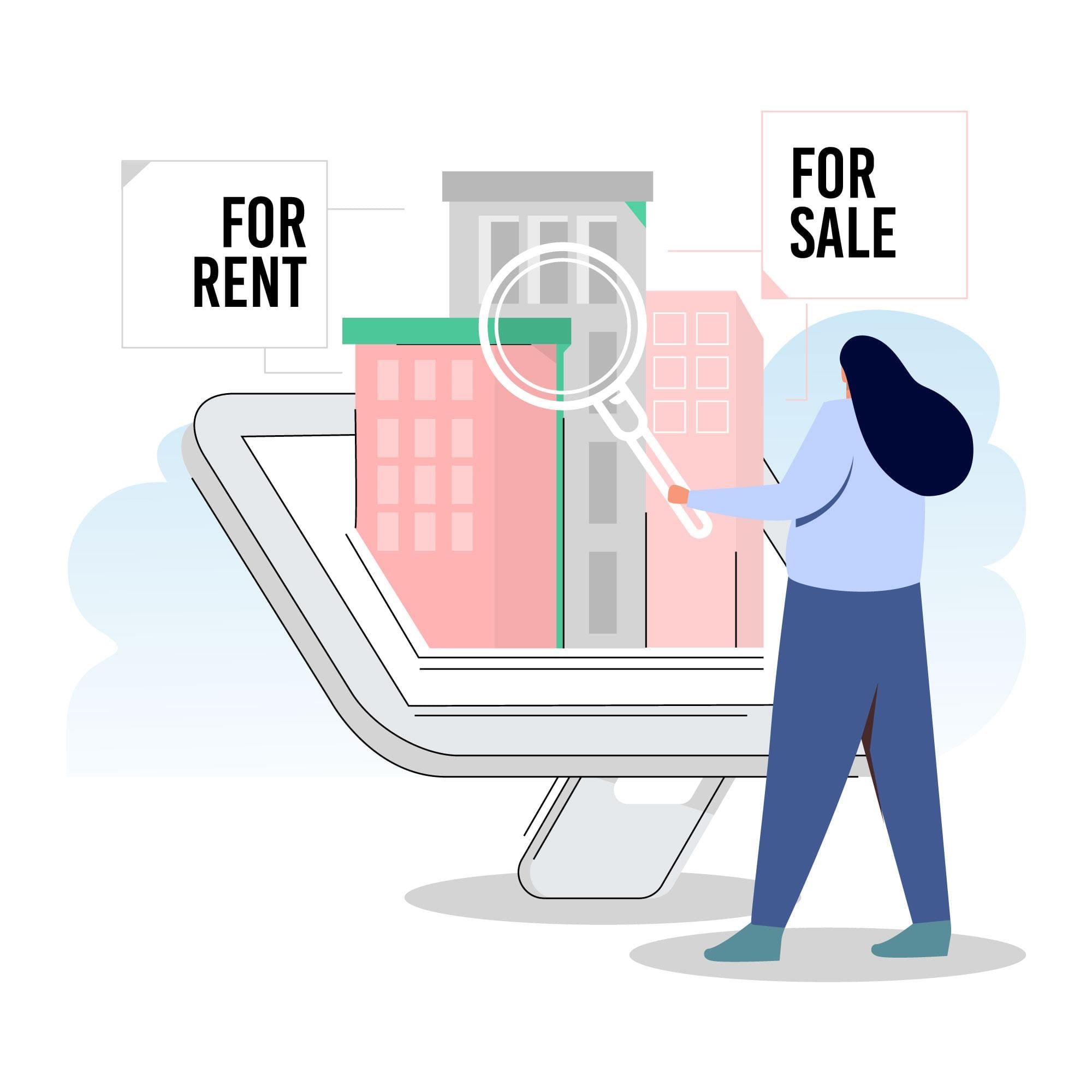When deciding whether to rent or buy a flat in Dhaka, it’s important to weigh the pros and cons carefully. This bustling city is a hub of culture, opportunity, and growth, but with rising property prices and dynamic rental markets, the choice is far from straightforward. In this article, we’ll explore every aspect of this crucial decision, helping you determine what’s best for your unique situation.
1. Understanding Dhaka’s Real Estate Market
Dhaka’s real estate market is one of the most dynamic in South Asia. Over the years, the city has witnessed rapid urbanization, leading to an increase in both rental and property purchase options.
With the growing population and evolving infrastructure, rental demand remains high, especially in central areas like Gulshan, Banani, and Dhanmondi. Meanwhile, purchasing a flat has become a long-term investment strategy for many, fueled by rising property values and low-interest housing loans.
2. Renting a Flat: Flexibility and Affordability
Renting offers unparalleled flexibility, making it ideal for those with short-term living plans or uncertain job locations. It also eliminates the burden of property taxes, maintenance costs, and long-term financial commitments.
On the affordability side, renting requires a smaller upfront cost compared to buying. A typical renter needs to pay a security deposit and a few months’ rent, while buyers face hefty down payments and registration fees.
3. Buying a Flat: A Step Toward Ownership
Buying a flat in Dhaka is an attractive option for those seeking stability and long-term financial growth. Owning a property provides security, allowing you to avoid annual rent hikes and landlord dependencies.
Additionally, purchasing a flat can be an investment. With Dhaka’s property values increasing over time, a well-located flat can yield significant returns, especially in emerging neighborhoods like Bashundhara or Mirpur.
4. Comparing Costs: Renting vs. Buying
When you calculate the costs of renting or buying, the differences can be striking. Renting involves recurring monthly payments, which can add up significantly over time. However, buying a flat requires a large initial investment, including down payment, registration fees, and ongoing loan repayments.
For example, renting a 2-bedroom flat in central Dhaka may cost around BDT 25,000–50,000 per month. On the other hand, purchasing a similar flat might require an upfront investment of BDT 1–2 crore, plus additional maintenance costs.
5. Lifestyle Considerations: What Suits You Best?
Your lifestyle plays a pivotal role in deciding whether to rent or buy a flat in Dhaka. If you’re a young professional or a student, renting might be more practical due to the flexibility it offers.
Conversely, families with long-term plans often prefer buying. Owning a flat ensures stability and allows for customization, creating a personal living space tailored to your needs.
6. Pros and Cons of Renting in Dhaka
Pros:
- Lower initial financial commitment.
- Flexibility to relocate quickly.
- No maintenance responsibilities.
Cons:
- No equity buildup.
- Vulnerable to rent increases.
- Dependence on landlords.
Renting is best for those who prioritize convenience over long-term financial planning.
7. Pros and Cons of Buying in Dhaka
Pros:
- Long-term financial investment.
- Freedom to modify the property.
- No dependence on landlords.
Cons:
- High upfront and recurring costs.
- Less flexibility to relocate.
- Maintenance responsibilities.
Buying suits individuals with a stable income and long-term plans in Dhaka.
8. Loan Availability and Affordability
In Dhaka, banks and financial institutions offer various home loan packages to make buying accessible. Interest rates have become more competitive, with repayment periods of up to 20-25 years.
If you qualify for a home loan, buying may become a feasible option. However, ensure you’re financially prepared for EMIs (Equated Monthly Installments), which may stretch your budget.
9. Long-Term Investment Potential
Real estate in Dhaka has proven to be a lucrative investment. Property values in prime locations like Gulshan and Uttara have consistently risen. By purchasing a flat, you’re not just securing a home but also building an asset that appreciates over time.
10. Tax Benefits for Property Buyers
Owning a flat in Dhaka comes with certain tax benefits, which can ease the financial burden. Home loan borrowers can claim tax deductions on interest paid, making property ownership more appealing.
11. Renting vs. Buying: Emotional and Practical Perspectives
While renting offers freedom and mobility, buying provides emotional satisfaction and a sense of belonging. The decision often boils down to individual priorities—do you value flexibility, or does long-term stability appeal to you more?
12. Emerging Neighborhoods in Dhaka
Emerging neighborhoods like Purbachal and Bashundhara offer affordable buying options compared to traditional areas. These zones are developing rapidly, with improved infrastructure and amenities that make them attractive for buyers and renters alike.
13. Hidden Costs to Consider
Whether you rent or buy, hidden costs can impact your budget. Renters may face additional utility or service charges, while buyers encounter maintenance fees, property taxes, and unforeseen repair costs.
14. Renting as a Transitional Phase
For newcomers to Dhaka or expatriates, renting serves as a transitional phase. It allows you to explore different neighborhoods and lifestyles before making a permanent commitment to buy.
15. Deciding What’s Right for You
Ultimately, the decision to rent or buy a flat in Dhaka depends on your financial stability, lifestyle preferences, and long-term goals. Evaluate your current situation and consider future plans before making this significant choice.
Conclusion: Making an Informed Choice
The decision to rent or buy a flat in Dhaka is deeply personal and influenced by numerous factors, from financial readiness to lifestyle needs. Renting offers flexibility and lower upfront costs, while buying provides stability and the potential for long-term financial growth. By carefully considering your priorities and options, you can make a decision that aligns with your goals.



